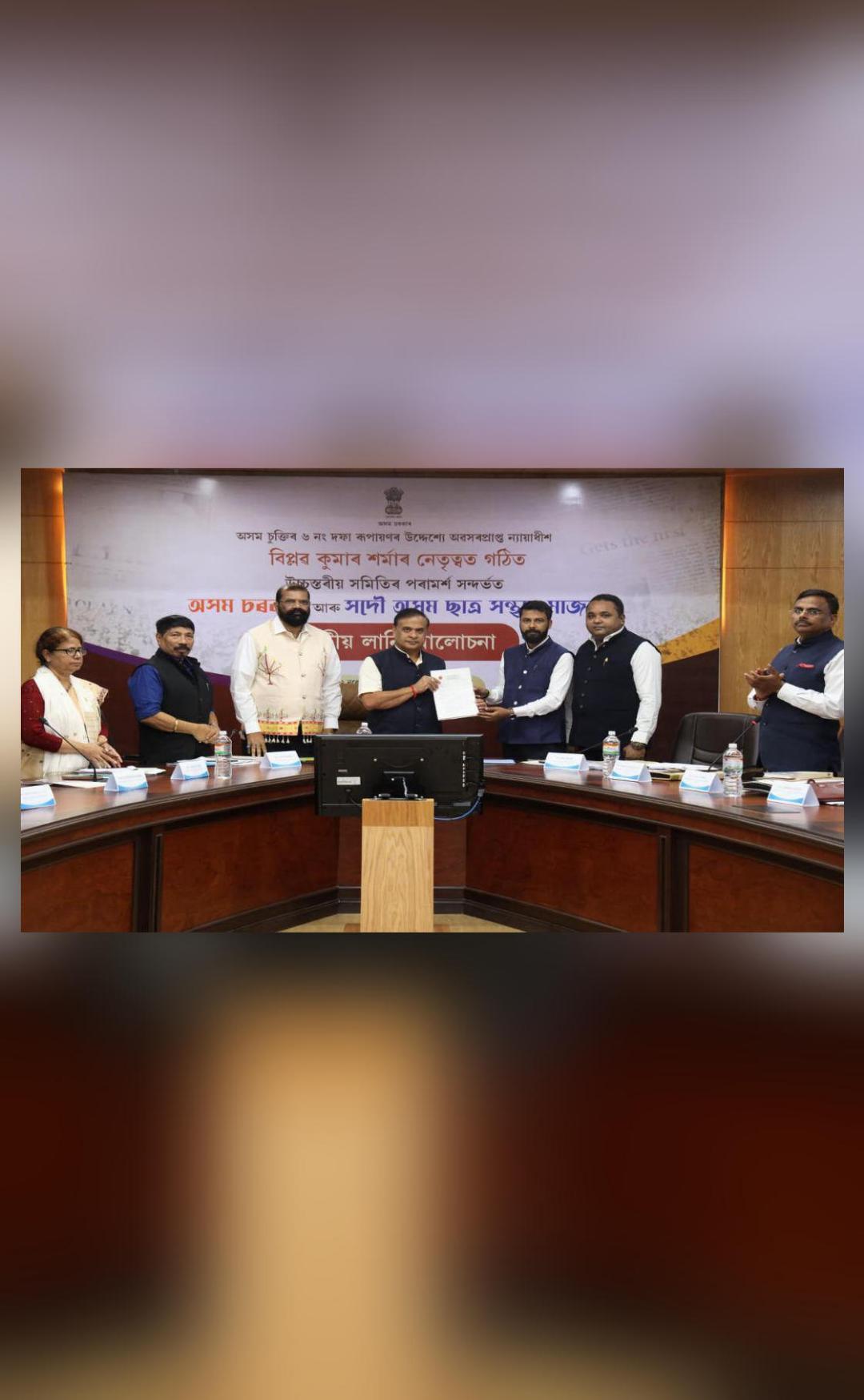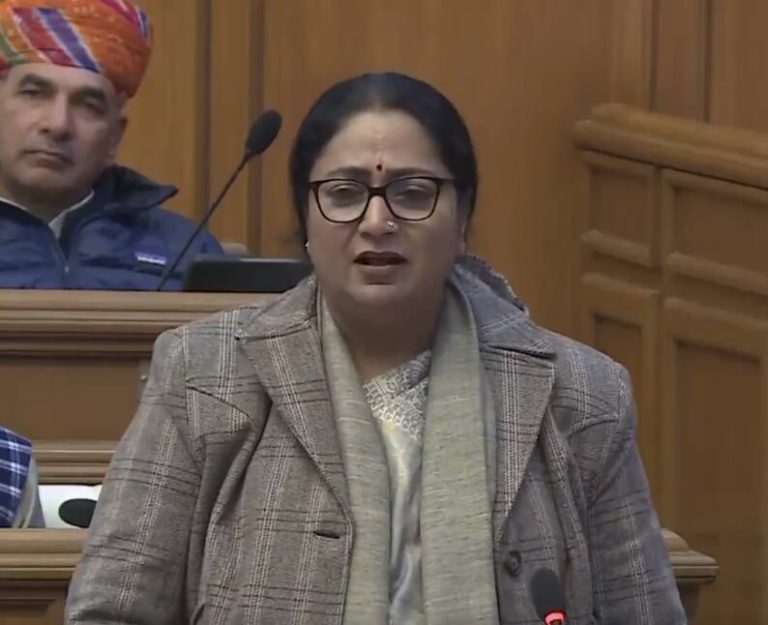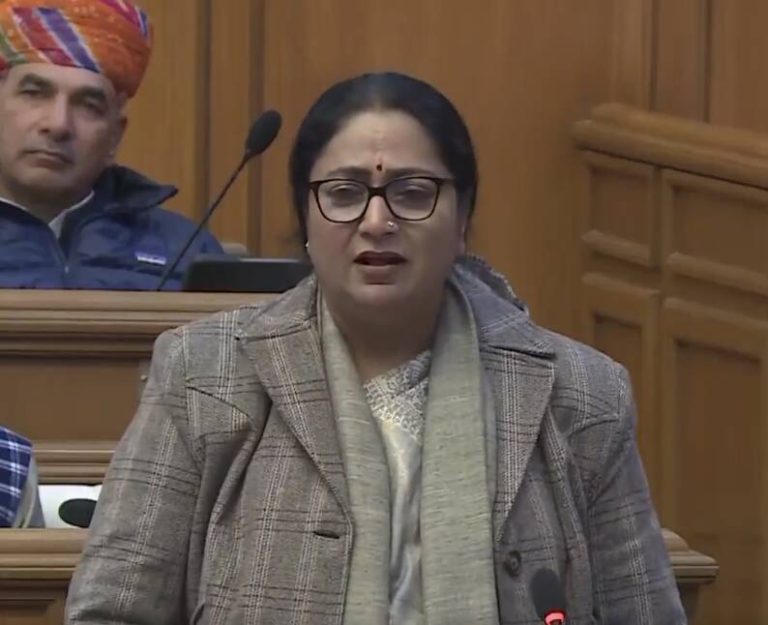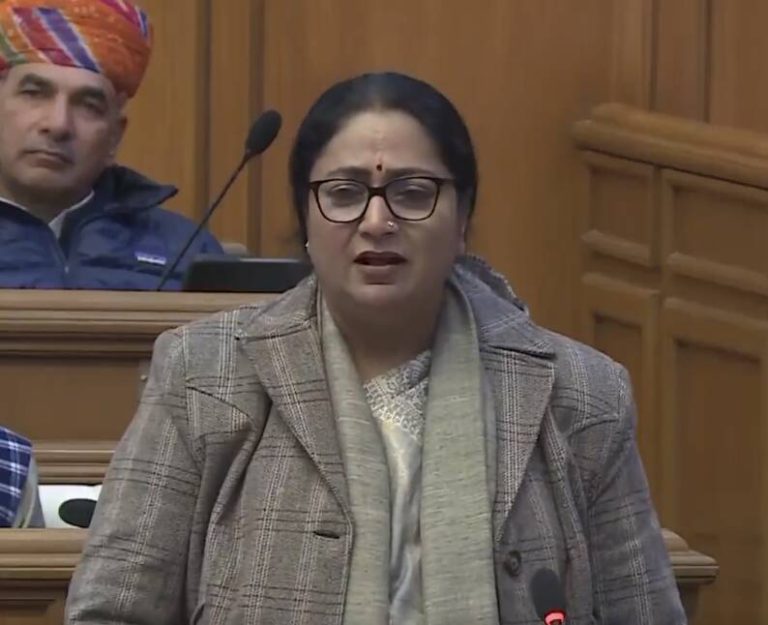
Assam govt–AASU meet revives Assam Accord push
The recent meeting between the Assam government and the All Assam Students’ Union (AASU) has brought new hope to the implementation of the Assam Accord, a historic agreement signed in 1985 to address the long-standing issue of illegal immigration in the state. The meeting, which was held to review the implementation of the accord, has resulted in a roadmap covering 52 state-linked recommendations, as per the Biplab Kumar Sarma Committee report. Additionally, a Cabinet sub-committee will be formed to oversee the implementation of these recommendations.
The AASU, which has been at the forefront of the movement to protect the rights of the indigenous people of Assam, has been pushing for the implementation of the Assam Accord for decades. The accord, which was signed between the Government of India, the Government of Assam, and the AASU, had outlined a series of measures to be taken to detect and deport foreign nationals who had entered the state illegally. However, despite the passage of over three decades, many of the provisions of the accord remain unimplemented.
The meeting between the Assam government and the AASU was a significant step forward in the implementation of the accord. The state government, led by Chief Minister Himanta Biswa Sarma, has shown a willingness to engage with the AASU and work towards finding solutions to the long-standing issues facing the state. The AASU, on its part, has been pushing for the implementation of the accord, and the meeting has given the organization a renewed sense of hope that the state government is committed to addressing the concerns of the indigenous people of Assam.
One of the key outcomes of the meeting was the agreement on a roadmap covering 52 state-linked recommendations. These recommendations, which are based on the Biplab Kumar Sarma Committee report, cover a range of issues, including the detection and deportation of foreign nationals, the protection of the rights of the indigenous people, and the development of the state’s economy. The formation of a Cabinet sub-committee to oversee the implementation of these recommendations is a significant step forward, as it will ensure that the state government is held accountable for the implementation of the accord.
In addition to the state-linked recommendations, the AASU has also been pushing for the implementation of 15 central recommendations, which are linked to the Centre. These recommendations cover issues such as the revision of the National Register of Citizens (NRC) and the implementation of the Inner Line Permit (ILP) system. The AASU has been seeking tripartite talks with the Centre on these issues, and Chief Minister Himanta Biswa Sarma has agreed to pursue this demand.
The demand for tripartite talks with the Centre is a significant one, as it reflects the AASU’s desire to engage with the central government on issues that are critical to the state. The Centre has a key role to play in the implementation of the Assam Accord, particularly with regards to the detection and deportation of foreign nationals. The AASU’s demand for tripartite talks is a recognition of this fact, and it is hoped that the Centre will respond positively to this demand.
The meeting between the Assam government and the AASU is a significant development in the context of the Assam Accord. It reflects a renewed commitment on the part of the state government to implement the accord, and it gives hope to the indigenous people of Assam that their concerns will be addressed. The formation of a Cabinet sub-committee and the agreement on a roadmap covering 52 state-linked recommendations are significant steps forward, and it is hoped that these developments will lead to tangible progress on the ground.
However, despite these positive developments, there are still many challenges that need to be addressed. The implementation of the Assam Accord is a complex issue, and it will require sustained effort and commitment from all stakeholders. The state government, the AASU, and the Centre will need to work together to address the concerns of the indigenous people of Assam, and to ensure that the provisions of the accord are implemented in a fair and effective manner.
In conclusion, the meeting between the Assam government and the AASU is a significant step forward in the implementation of the Assam Accord. The agreement on a roadmap covering 52 state-linked recommendations and the formation of a Cabinet sub-committee are positive developments, and it is hoped that these will lead to tangible progress on the ground. The AASU’s demand for tripartite talks with the Centre is also a significant one, and it reflects the organization’s desire to engage with the central government on issues that are critical to the state. As the implementation of the Assam Accord moves forward, it is hoped that all stakeholders will work together to address the concerns of the indigenous people of Assam, and to ensure that the provisions of the accord are implemented in a fair and effective manner.
News Source: https://hubnetwork.in/assam-govt-aasu-talks-revive-assam-accord-implementation-push/





